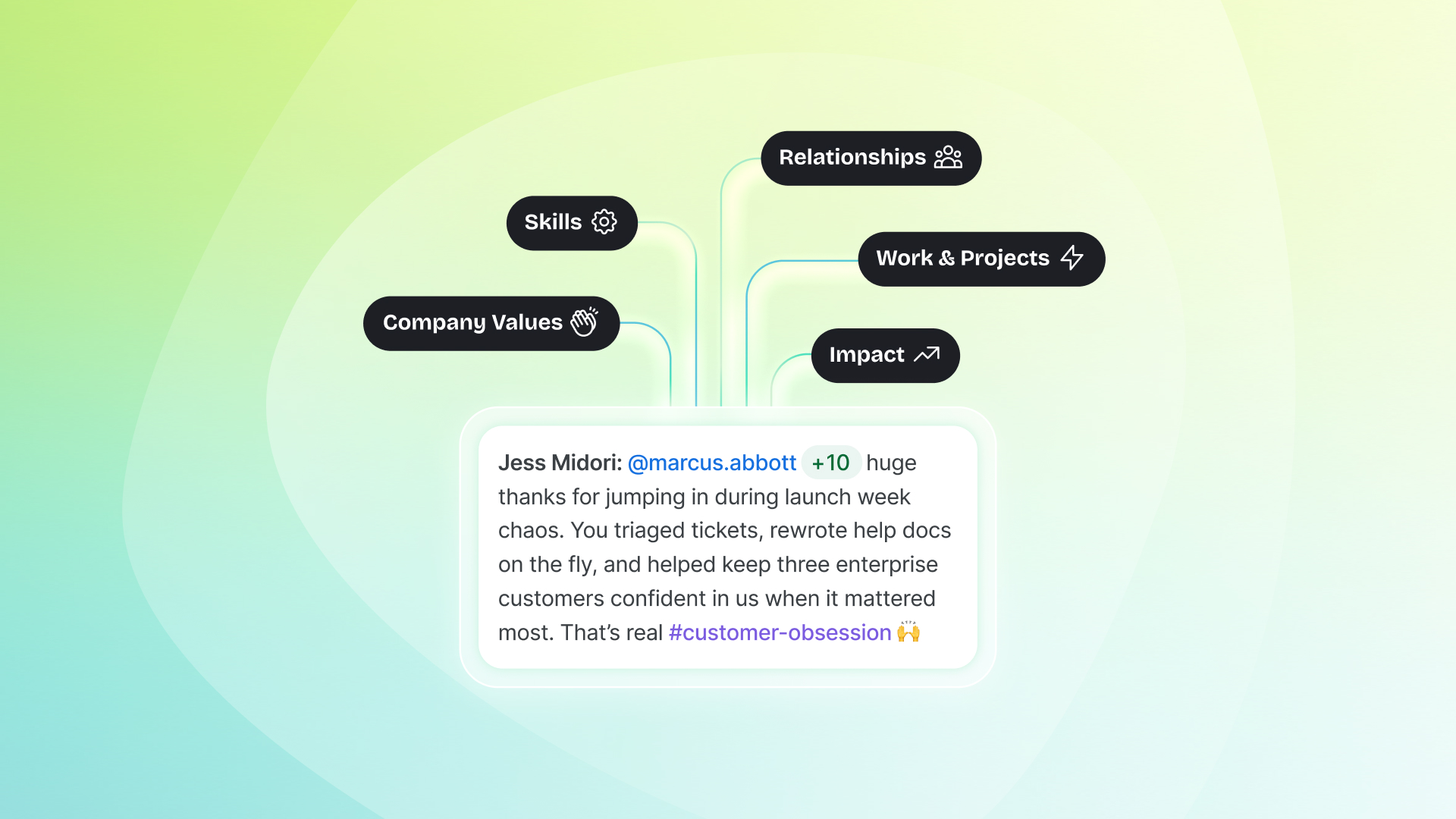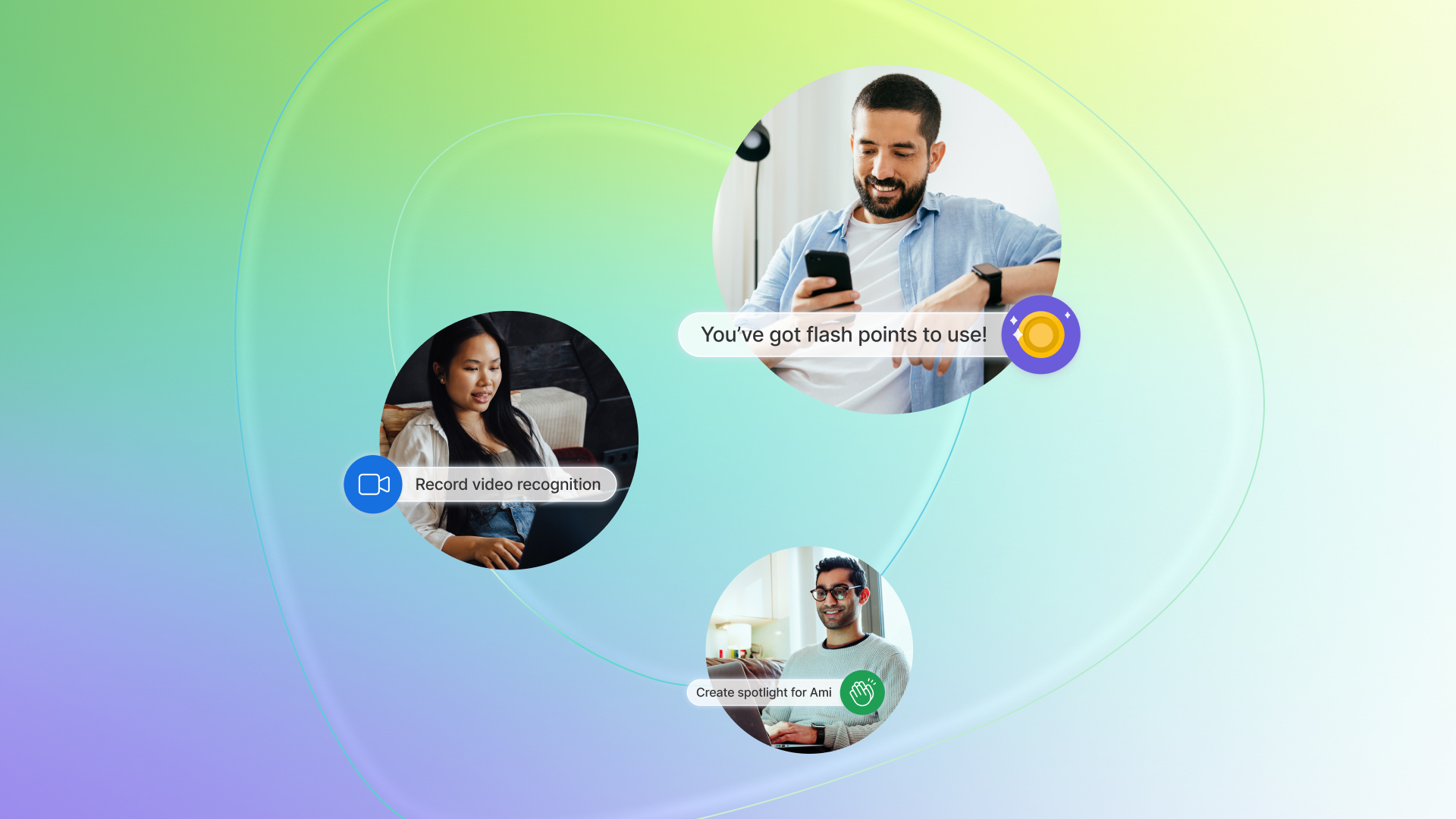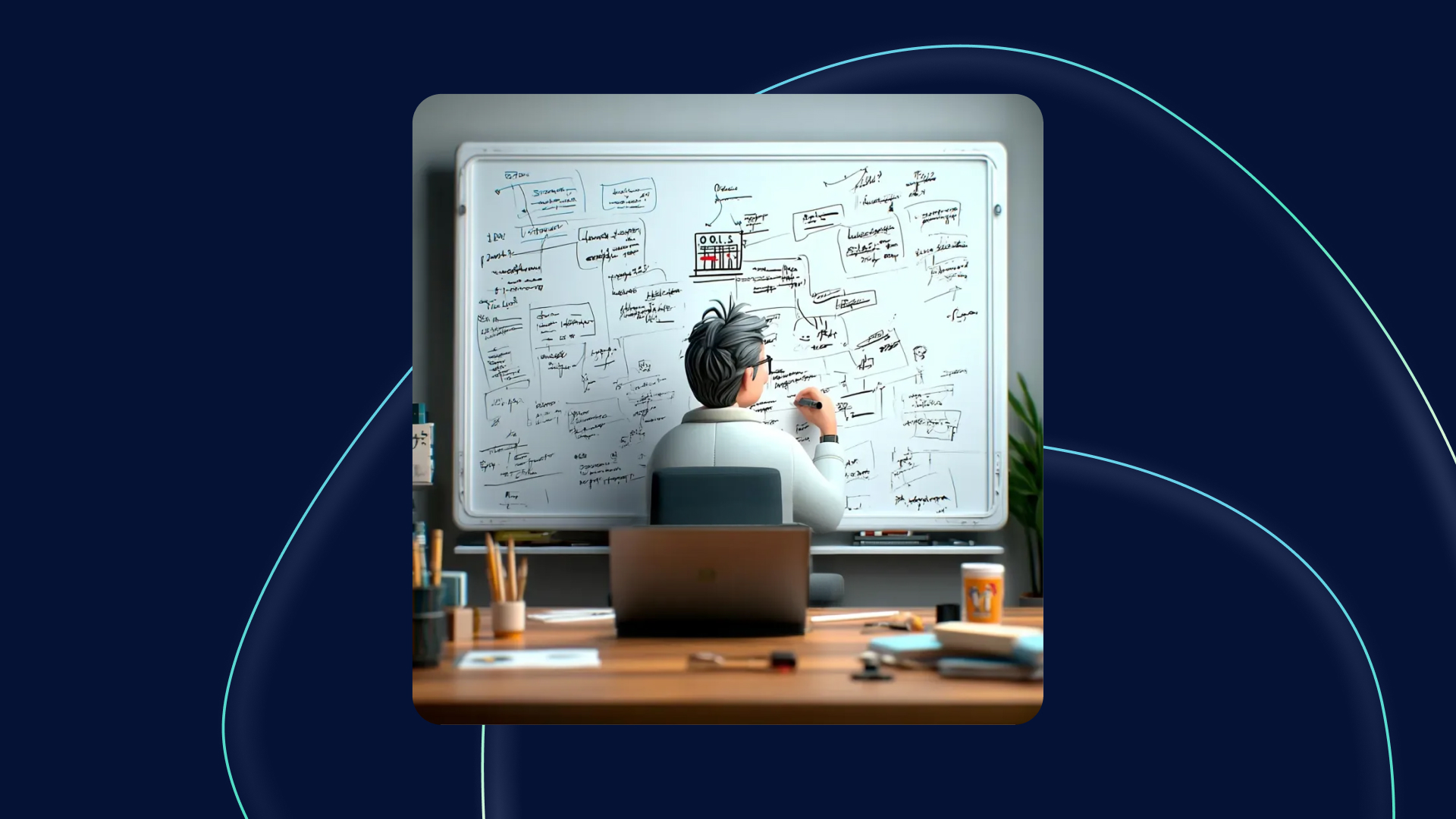AI in the Workplace: How Can HR Teams Leverage AI?

There’s a ton of chatter and questions right now about how and where AI will transform the way we work. There’s plenty of excitement mixed with some apprehension. 😬
But one big question is no longer up for debate: whether or not AI has a place in the workplace. AI is undeniably here to stay.
What HR teams need to decide is how to use and leverage the incredible power of AI to be more productive and efficient. Using AI in the workplace is not, and shouldn’t be, about replacing the valuable work that employees do with machines, but about enabling them to do more of the work that they love.
Let us repeat:
Using AI in the workplace is not, and shouldn’t be, about replacing the valuable work that employees do with machines, but about enabling them to do more of the work that they love.
With that in mind, here are some ways HR teams can use AI to benefit employees and their organization’s goals alike.
--> Want more? Download the [HR Checklist] How to Use AI in the Workplace

The history of AI in the workplace
While it might seem like AI is a brand-new force (and so perhaps a passing trend), it actually has a surprisingly long history in the workplace.
Virtual assistants and chatbots are the best-known examples of AI, and they’re nothing new; companies have been using AI for years to try to make work more efficient, but not always with a lot of success. Who can forget Clippy, the wide-eyed Microsoft assistant who would pelt you with suggestions every time you opened a Word doc?
AI-powered assistants are a whole lot smarter these days, and many businesses use them as chatbots to answer basic questions from customers and employees. Spam detection is another super-common use of AI right now (just check your spam folder for evidence of how well it typically works). Machine translation is also pretty deeply embedded into how companies work these days, at least for quick and rough translations to and from other languages.
But in the past year, since OpenAI made ChatGPT available to the public, the possibilities—and potential liabilities—of using AI to transform how we work seem endless. While humans are still essential to any workplace, and certainly any HR team, using AI thoughtfully and carefully can reap significant benefits for your teams and your organization.
--> Want more? Download the [HR Checklist] How to Use AI in the Workplace

5 ways HR teams can embrace AI
HR teams are already leveraging AI to make their employees more effective and efficient, freeing up time for more strategic work by taking repetitive manual tasks off their plates. Here are some of the best ways you can do the same.
1. Streamlining content creation
It might seem like content creation is not within the HR world—but think again. HR teams are tasked with writing employee handbooks and benefit explainers, policies and procedures, and internal memos and communications. Your recruiting teams might manage a careers website as well, and even some social media content to promote your employer brand.
Coming up with ideas, drafting, and editing all of that content is time-consuming and often repetitive, so sometimes it falls by the wayside. Using AI to help in the content ideation and creation process can speed it up and ensure it gets done while freeing up time for other tasks.
Of course, as with any AI use, you absolutely need a human to manage and oversee the process and check the final product carefully for accuracy and tone.
2. Speeding up the hiring process
The hiring process is filled with small but critical moments that can majorly affect your candidate experience—and AI can help you make those run more smoothly. For example, it can help you craft more accurate and compelling job descriptions instead of reusing the same tired ones you’ve been relying on because no one has time to update them.
The messages you send to candidates to keep them informed throughout the process also often fall between the cracks, leaving them in the dark about their progress. AI can help you draft and send those (with human oversight) to both current candidates and also to reach out to potentially great ones on LinkedIn or job boards.
AI can also assist in later stages of the hiring process: coming up with newer and more insightful interview questions (just be sure you’re using a bias-free AI tool) and evaluating and synthesizing candidate responses to assessment tests or video interviews, for example.
AI can’t, and shouldn’t, be making any decisions about candidates, but it can offer a wide range of easily accessible and understandable data that can help your human team make those decisions with all the information they need.
3. Effectively onboarding employees
Onboarding new employees is a massive process—you’re tasked with introducing them to their team and imparting your company culture while also processing a huge amount of paperwork and assigning mandatory trainings.
AI is an excellent assistant for the last two tasks, as it can help you assign any paperwork trainings and follow up to ensure new employees complete everything. With these manual tasks out of the way, your HR employees can focus on welcoming the new arrivals, facilitating those critical human connections, and imparting core company values right off the bat.
4. Promoting learning and development
Providing customized career development for employees is another task that often gets pushed to the side of a busy manager’s plate. But learning and development are critical to employee engagement and retention, so they’re too important to ignore—in fact, three of the top five reasons people seek new jobs are related to development and growth opportunities.
Your HR team can leverage AI to assign every employee a customized plan for honing their skills and developing their existing talents to get to their career goals. Every employee has a different set of motivations, aspirations, and skills, and coming up with a plan to harness all of this together is a great use of AI. Plus, it can track progress and send employees reminders so they stay on track and see how much closer they are to their ultimate career goals.
5. Analyzing your data
Your company, and your HR team, are probably sitting on a huge treasure trove of data about employees, candidates, your employee experience, and your candidate experience— plus much more. However, making use of reams of data can be overwhelming and seem impossible. Until you start using AI to do it. 🧐
AI is incredible at analyzing and synthesizing large amounts of data to help you make better business decisions. You could investigate how well your hiring process predicts new hire performance and retention, for example, to refine its effectiveness. Or you could look at trends in employee engagement after you put different policies into place, or with different leaders in charge, to see what’s working well and what should be adjusted.
The caveat here, of course, is to be cautious about who you trust your data to because of privacy and security concerns. But with the right AI platform, your HR team can get clear, simple summaries of huge amounts of information easily to guide better business decisions.
--> Want AI tools for these five HR areas? Download the [HR Checklist] How to Use AI in the Workplace

The takeaway
AI is already mighty, and it’s being refined even further every day, too. But—and this is a bit but—it’s also still limited in many important ways. It can’t fact-check, or offer human warmth or empathy, or make critical decisions. But it can help your talented HR people to make those decisions themselves with more information and take high-effort repetitive tasks off their to-do lists.
With a strategic HR AI plan, you can get the best of both worlds: the efficiencies and time-savings of AI with the unique and irreplaceable human element that makes everything work. These are just a few of the most exciting examples of how HR teams can leverage AI in the workplace. Don’t be afraid to experiment and see what works for your team!
--> Learn how you can build connected, motivated, high-performing teams by scheduling a free demo with Bonusly.
.webp)







